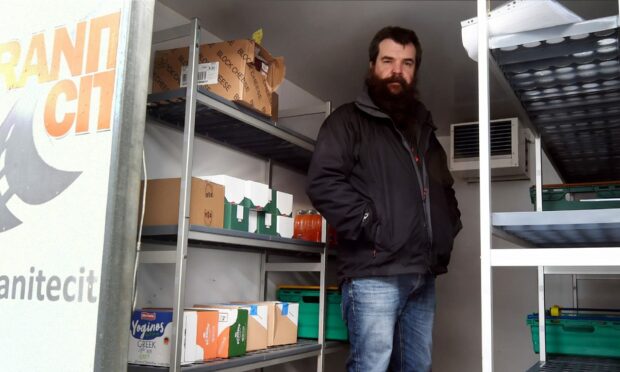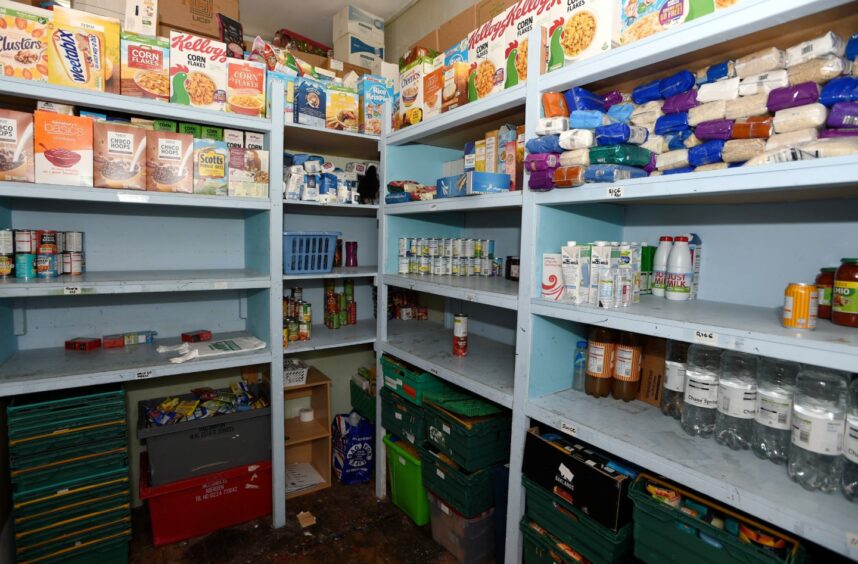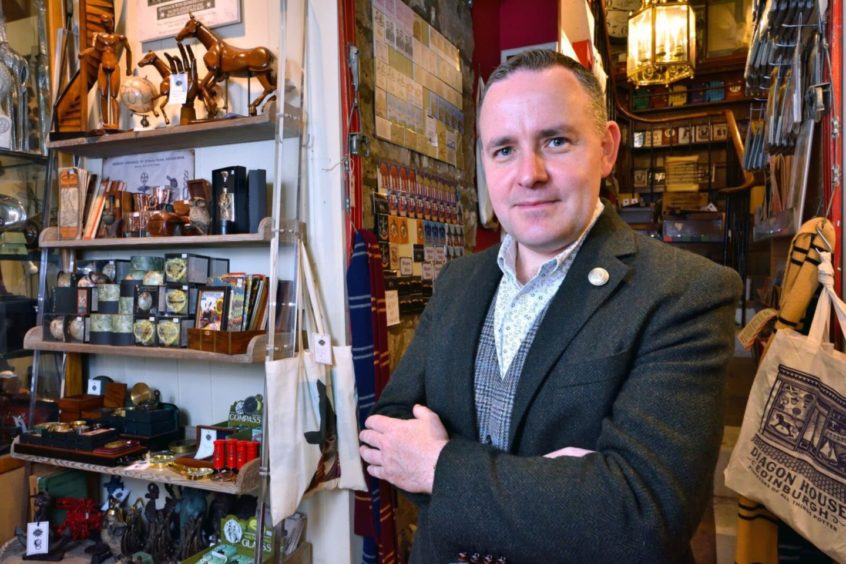Soaring energy costs and hike in interest rates is seeing the cost of living “become more and more terrifying” for households across the north-east.
And there are warnings the latest price increases could push those on the cusp into poverty.
Energy bills are set to soar by nearly £700 after regulator Ofgem lifted the price cap by more than 50% from April.
Consumers could be forced to pay up to £1,977 per year now, an increase from £1,271.
Meanwhile the Bank of England raised interest rates to 0.5% and signaled more hikes are on the way as it warned rocketing inflation will see the worst hit to household income for at least 32 years.
A fear faced by many
Aberdeen charity Instant Neighbour community connector and foodbank manager Evan Adamson believes the latest announcement will cause many to struggle to feed their families.
He said: “The announcement hits hard and makes a reality the fear that we’ve been faced with now for some months.
This is happening when we are in the depths of a ‘heat or eat’ crisis for many in poverty. ”
Evan Adamson, Instant Neighbour
“The main concern we see here is the £700+ cap in prepayment energy prices.
“Prepayment is the method generally used by those at the lowest end of the financial spectrum yet they are being hit with around £60 a month potentially on their fuel bills.
“This is happening when we are in the depths of a ‘heat or eat’ crisis for many in poverty.
“£60 is roughly 20% of an adult’s monthly Universal Credit award – just under a whole week’s award – and with steadily increasing prices across the board, the cost of living for many is becoming more and more terrifying.
“This will definitely have an effect on monetary, emotional and physical well-being as people struggle to put food on their tables and heat their homes.”
Instant Neighbour, based in St Machar Drive, has seen a drop in foodbank donations.
Something Mr Adamson believes is due to the rising cost of food and leaving families facing an impossible decision.
He said: “It will likely see those who are just on the cusp of struggling right now pushed into poverty and having to seek help from the third sector and other welfare agencies.
“This will also have a knock on effect on the amount of donations that foodbanks get as those who would normally donate food are squeezed harder too causing potential shortages in emergency food providers.
“We are already seeing a change in the types of food donated with spiralling costs and this may well compound the issue.
“The mood has been a toss up between fear for those finding themselves in the situation for the first time and despondency for those who have been there for a while now.”
Christians Against Poverty (CAP) debt centre manager Ben Clift also expressed the charity’s worries.
He said: “We’ve seen food prices rise, the Universal Credit uplift being cut and now with fuel prices increasing again we’re worried about where this will leave people in Aberdeen in 2022.
”We’re encouraging people to access help and support now, towards the beginning of the year rather than waiting until things potentially get even worse.
“We know that affording energy is already a huge stress, and this price can only make it more stressful.
“Many of those we work with struggle to stay warm as it is, so the rises announced will make matters worse.
“But, knowing where to get support can make a real difference.”
Households to get some financial help
Following the announcement regarding the energy cap, Chancellor Rishi Sunak promised to “take the sting out” of the price rises.
He promised that all 28 million households in Britain would get a £200 up-front rebate on their energy bills from October.
The Government will provide the cash for this, but it wants the money back so will hike bills by £40 per year over the next five years from 2023 to recoup its cash.
Households and small businesses under pressure
However, the Federation of Small Businesses (FSB) in Scotland has warned that smaller firms face the same pressures as households and Mr Sunak’s announcement provided no relief.
FSB in Scotland’s policy chair Andrew McRae said: “The measures outlined by the Chancellor today do nothing to protect local and independent businesses from punishing increases to their energy bills.
“Small businesses aren’t included in the price cap, and don’t have the negotiating power of the biggest firms. That means that Scottish businesses are under the same pressure as households with none of the protections.
“The UK Government is right to help households with rising costs, but ministers need to extend the support to include smaller firms.
And with cash from today’s announcement heading to Holyrood, we’d urge decision-makers in Edinburgh to look at what they can do to help.”
Inflation to reach highest level since 1991
The decision to rise interest rates came as the bank cautioned that rocketing energy prices will drive inflation to an eye-watering 7.25% in April, which is the highest level since August 1991.
Scottish Friendly saving specialist Kevin Brown, said: “Inflation is likely to carry on rising towards 6% and beyond in 2022 with wholesale energy costs and food prices still soaring, which means the Bank will have to decide whether to keep pushing up borrowing costs.
“This might be good news for savers if banks do choose to pass on higher interest rates to customers, but many households will be more concerned with whether they can save at all.
“Millions of families are going to be paying hundreds of pounds more in gas and electricity after today’s announcement that the energy price cap will increase by an eyewatering 54%.
“If the average household is forking out an extra £700 a year, how many families will still find money left to save?”
Public bodies need to get their act together
On the interest rate rise, Mr McRae said: “Over the last two years, we know that thousands of Scottish businesses exhausted their cash reserves and took on debt to survive.
“Now all of this debt that carries a floating rate is going to become more expensive to service.
“Policymakers should extend the Pay As You Grow initiative to a wider range of government backed loans to make it easier for businesses to manage their debt.
“In Scotland, public bodies need to get their act together and deliver on their promise of Covid grants so that firms can pay down some of their debt.”



